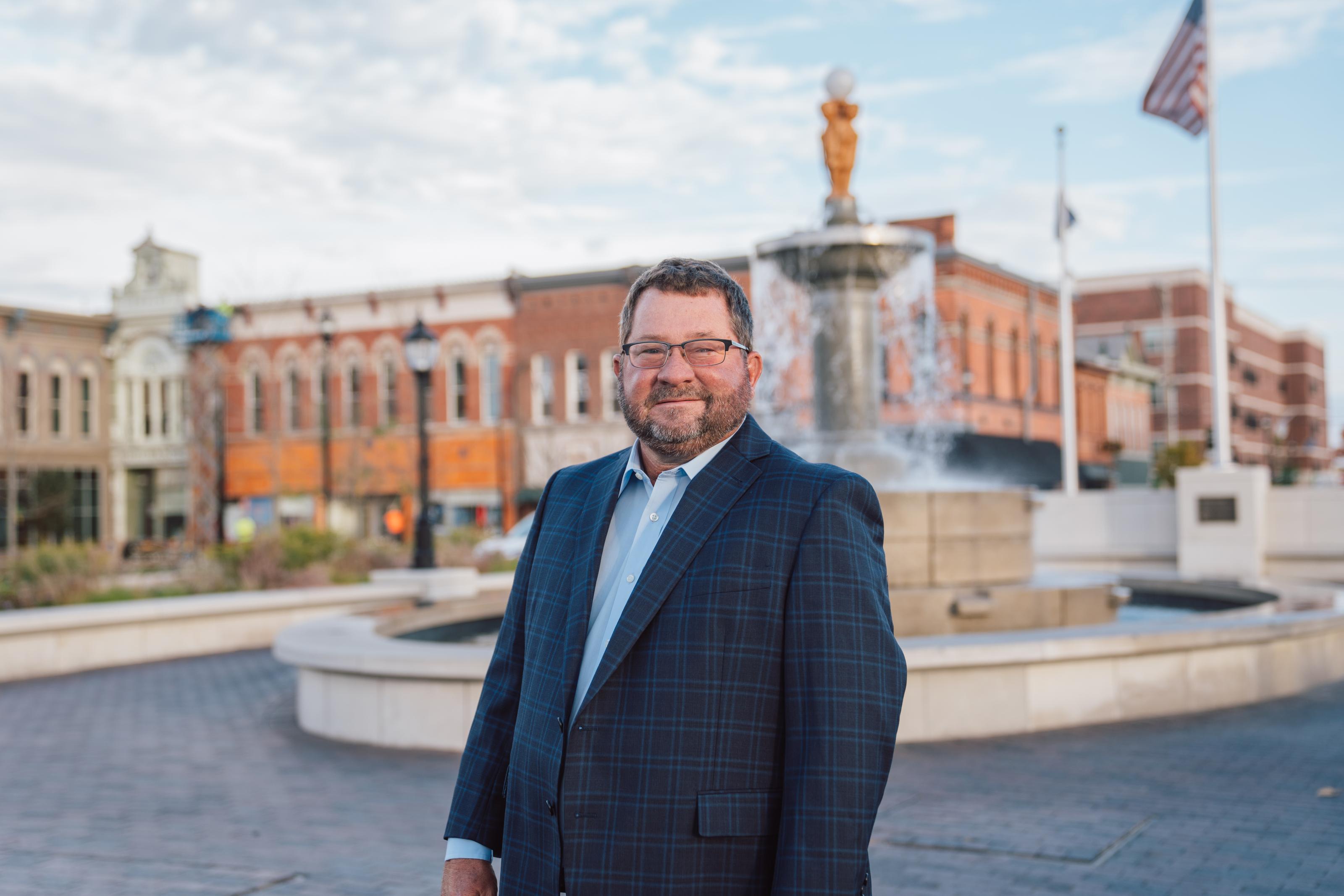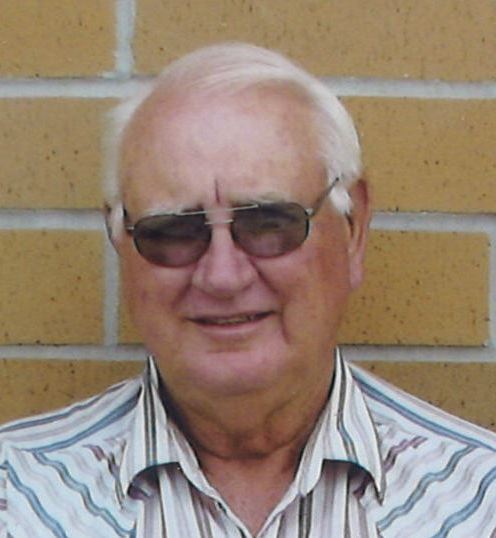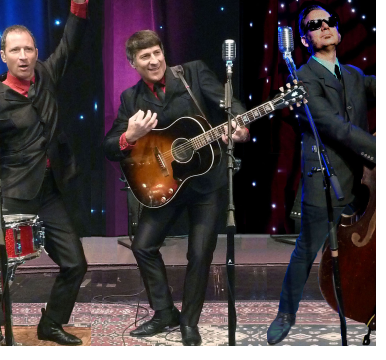The recount of the 2023 Shelbyville mayoral election confirmed Republican Scott Furgeson as the winner over Democrat challenger Nic Weber by a 19-vote margin. The results will be recorded as the closest in terms of both votes and percentage difference in city mayoral election history.
The recounted figures had Furgeson (main photo), the current fourth ward councilman and former two-term Shelbyville mayor, finishing with 1,396 votes and Weber with 1,371. Previous final numbers had shown Furgeson with a 1,406-1,387, 19-vote advantage.
Weber’s strong performance was the highlight for Democrats as Republicans captured the five contested common council seats by substantial margins with the closest race a 6% differential. Republicans were unopposed for the clerk-treasurer spot and the other two council seats so the victories gave the GOP control of all nine city offices.
A historical examination reflects several close mayoral battles during the past seven decades, as well as some interesting trends with respect to voter turnout and the city council.
The next closest Shelbyville mayor’s race in the modern era, dating back to 1956, was in 1975 when Democrat Ezra Dagley defeated Republican Jack Worland by 121 votes, 2.6% of the vote.
Current mayor Tom DeBaun’s 201-vote win in 2019 over Republican Brad Ridgeway stands as the third slimmest margin in terms of outright vote total, however the 6% difference is the fourth smallest in percentage, tying with Republican Ralph van Natta’s re-election win over John Evans in 1967.
Dan Theobald’s 4%, 212 vote 1983 plurality over challenger Bill Cole is recorded as the third tightest percentage contest in the last 67 years.
There have been 16 mayoral elections since 1963, Republicans have won nine, Democrats seven.
Six individuals occupied the mayor’s seat between 1971 and 2003. Five of them served only one term during that 32-year period. Democrats Jerry Higgins, Dagley, Bob Williams, Frank Zerr and Republican Betsy Stephen were in office for only one term. Five of the six also suffered defeat as incumbents. Dagley, Williams, Zerr and Stephen were unseated after their first terms.
Theobald lost his bid for a fourth term in 1991 after winning an unprecedented three elections. Higgins chose not to seek a second term as mayor at the conclusion of his first four years in 1975.
Conversely, only two people, Furgeson and current mayor Tom DeBaun, will occupy the mayor’s office in the ensuing 24 years since 2003. Zerr, Rod Meyerholtz and recently re-elected Scott Asher are the only three people to hold the clerk-treasurer’s position over the course of the last 10 city elections -- 40 years.
Republicans have won the majority on the city council in 13 of the past 16 elections, including 7-0 sweeps in four of the previous six. Democrats last gained council leadership in 1999 when Zerr was elected mayor. Democrats held a 4-3 majority when Theobald was re-elected to his second term in 1983 and gained a 5-2 advantage when Williams unseated Theobald in 1991. Shelbyville Democrats recorded a 7-0 council sweep in 1971, the year Higgins won a landslide mayoral victory.
Historically, Furgeson’s 2023 mayoral win puts him in the company of two of the city’s most successful political figures: Higgins and Zerr.
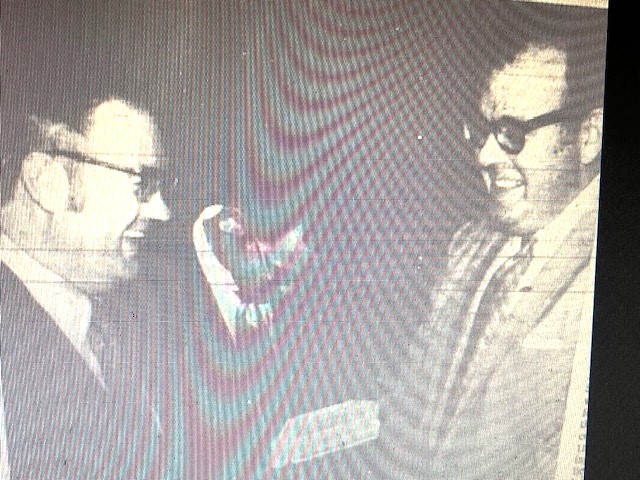
Former Shelbyville mayor John Anderson congratulates Jerry Higgins following his victory in the 1971 mayor's race.
Higgins had completed his first term as an at-large councilman when he won a resounding victory in the 1971 mayoral race. He opted not to seek a second term as mayor. After a four-year absence from government, he won the fourth ward city council seat in 1979 and subsequently won three consecutive elections representing that district until 1995.
Zerr was victorious in 8 of 11 local electoral attempts between 1974 and 2019; two as county treasurer, five as city clerk-treasurer and was elected mayor in 1999. Furgeson’s recent win was his sixth political triumph without a defeat. He captured the fourth ward council seat in his initial venture in 1995 and earned an at-large spot four years later. He served consecutive terms as mayor from 2003 through 2011. Furgeson has most recently held the fourth ward council seat since 2019.
Furgeson, Higgins and Zerr also consistently demonstrated a sense of resilience and possessed an ongoing appeal for Shelbyville voters. All three took breaks from government service and each enjoyed significant success upon his return.
Ironically, Furgeson defeated both Higgins and Zerr along the way. Furgeson beat Higgins for the fourth ward council position in 1995 and unseated Zerr, the incumbent mayor, in 2003.
Voter turnout for local elections across the country has steadily declined since 1980. Participation in national elections has remained relatively constant, however voter turnout at the local level has plummeted.
“The way in which Americans learn about politics today has transformed,” writes Dan Hopkins in the online source 538. “Cable television and the internet have introduced a host of new information sources.”
That information focuses on national politics. These modern outlets provide an immediacy; they are instant communication. The 24-hour news cycle and the internet bombard the consumer with endless options for political news and perspective, often delivered directly to one’s phone. Americans today are prone to gravitate to these sources for political news and information.
A 2014 Pew study found that fewer than 50% of respondents reported getting political news from local sources. Consequently, the political information the American voter receives has much less local content.
“The result: Many of the voters who do show up to cast ballots for local races will likely do so with an eye toward national politics,” writes Hopkins, “and other citizens will sit out the elections entirely.”
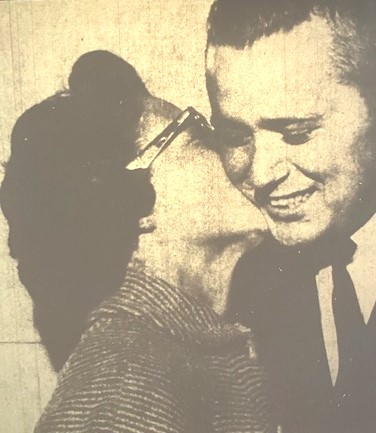
Newly-elected Shelbyville mayor Ralph van Natta celebrates with wife Nora after 1963 election.
An analysis of Shelbyville city elections since 1963 confirms this trend. Sixty-seven percent of registered voters turned out to elect van Natta mayor over Democrat Glen Montgomery that year. That figure dropped to 55% when van Natta won re-election in 1967 but rose back to 65% in 1971 when Higgins was elected and held steady at 66% when Theobald beat Democrat Delight Adams in the 1979 mayor’s race. Voter turnout remained above 60% for the next three city elections.
Participation dropped 11% from 61% to 50 % in 1995 when Betsy Stephen won the mayor’s seat. The number dropped to 39% in 2003 when Furgeson was elected to his first term as mayor and has been below that ever since.
Turnout recorded an all-time low of 12.5% in 2015, the year incumbent mayor Tom DeBaun ran unopposed. Voter response ticked up to 23% in 2019 when DeBaun defeated Republican challenger Brad Ridgeway, but dropped to 18% with the recounted numbers this fall.
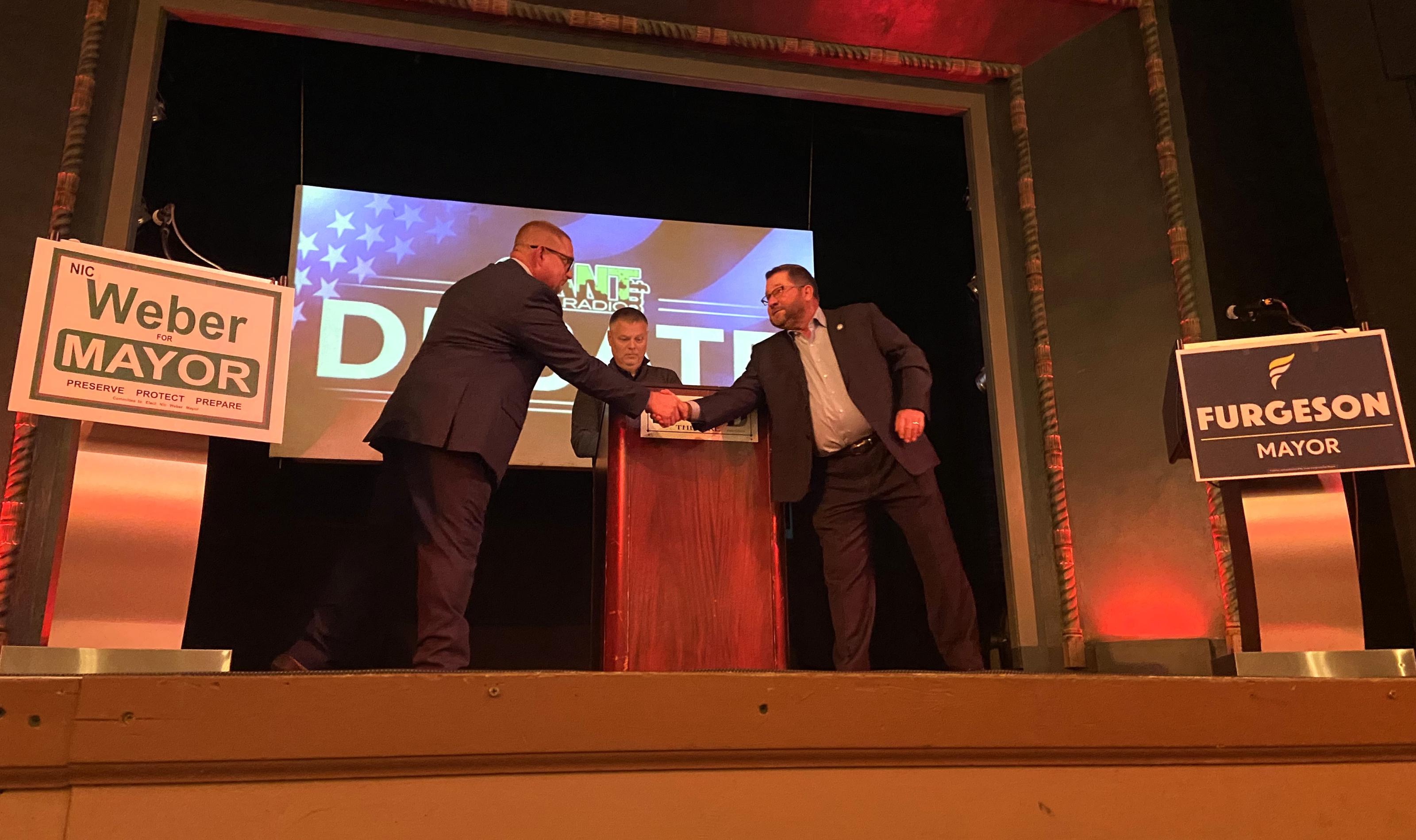
Mayoral candidates Nic Weber (left) and Scott Furgeson (right) shake hands ahead of GIANT fm's debate held at the Strand Theatre in downtown Shelbyville in October.
Several factors played into the Furgeson-Weber race being extremely competitive.
On its face, the matchup appeared to be one of stark contrast: Furgeson, a political veteran was pitted against Weber, a newcomer to public affairs.
However, in several aspects, Furgeson and Weber were candidates with similar characteristics that endeared them to the local constituency. Both have extensive and successful business histories. Each has been active in community affairs outside the sphere of public service and both are identified as having made strong contributions as community advocates. There was a widespread perception of dependability. The two also shared a background in public service; Furgeson in government, Weber as a firefighter.
They presented the public with two formidable candidates.
Ultimately, the 2023 city campaign provided positive conclusions to be drawn by both camps. Shelbyville Democrats experienced a revitalization and renewed enthusiasm during this latest political round. They are undoubtedly buoyed by their strong performance in the mayoral race and the diligent efforts by many of the party faithful.
Republicans are pleased to have returned a proven political leader with an unblemished record of electoral success to the city’s highest office. The GOP also has the advantage of having complete control of city government positions for the next four years.
Politics, regardless of the level, is a continuous dynamic. I am sure both local parties are already looking forward to 2027.
Get the most recent Shelby County Post headlines delivered to your email. Go to shelbycountypost.com and click on the free daily email signup link at the top of the page.

